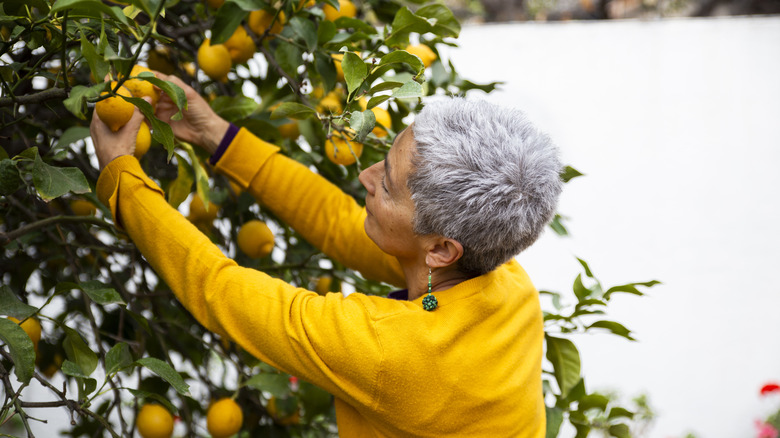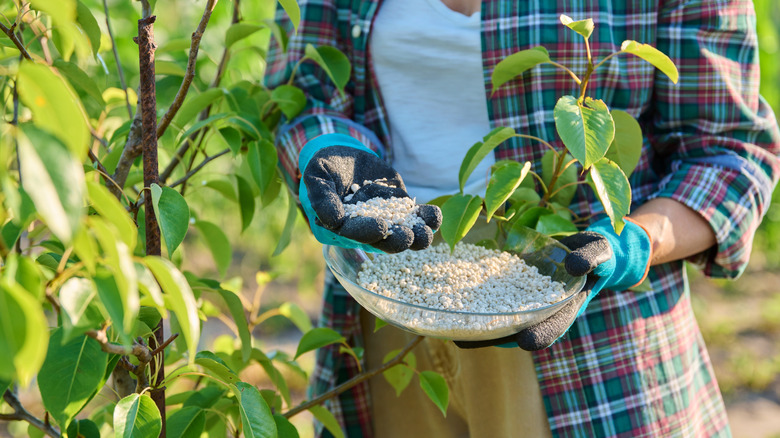Should You Fertilize Your Fruit Tree In The Fall? What To Do Now For A Bigger Harvest
After a long summer of tending to your landscaping, you may be ready to harvest your bounty and hang up the gardening gloves until the warmer months return. However, you would be missing out on an opportunity to set your plants up for success during the following spring. Before you take a break from your gardening duties for the season, consider fertilizing your fruit trees and shrubs in the fall. Doing so can promote healthy root growth and long-term health while improving fruit production down the road.
There's a lot of contradictory information out there about whether fertilizing fruit trees in the fall is truly worth the effort. Many gardeners opt for spring fertilizing, since that is the standard practice. However, emerging research shows the fall has its own separate set of benefits. These studies found that it can aid in root growth as well as encourage faster development and healthy foliage. In turn, this helps with the overall health of your fruit tree.
However, fall fertilizing is all about careful strategy. Before you rush to throw any old fertilizer on whatever random fruit tree or shrub in your yard, you have to take stock of your plants' health and overall needs. Timing is also crucial when it comes to fall fertilizing.
How to properly fertilize your fruit trees
Not all fruit trees will need to be fertilized in the fall, and those that do may require different types of supplemental feeding. But before you even consider fertilizing, carry out a soil sample test to identify missing nutrients. You can do so by either using a DIY soil test kit or reaching out to your county extension office for assistance. The test will reveal which key nutrients, if any, that you may need to feed your tree. Each fruiting tree or shrub will require different levels of nutrients, such as potassium, nitrogen, and phosphorus. From there, you can determine the best fruit free fertilizer for your plants. Each fertilizer will have a different ratio of nutrients; based on your soil test, select a fertilizer that will supplement what your tree is lacking.
Once you establish which fertilizer will be best for your fruit tree, it's vital that you administer it at the proper time. If you fertilize the tree too early in the fall, you may actually hurt its potential for the spring by encouraging premature growth that should occur the following fall. This new growth may be damaged by the coming frost and negatively impact the tree's overall health and spring growing potential. The trick is to wait until the temperatures drop and your tree isn't actively growing more foliage. At this point, it will use the nutrients to bolster its root growth, serving as a great asset to fast-growing fruit trees.

